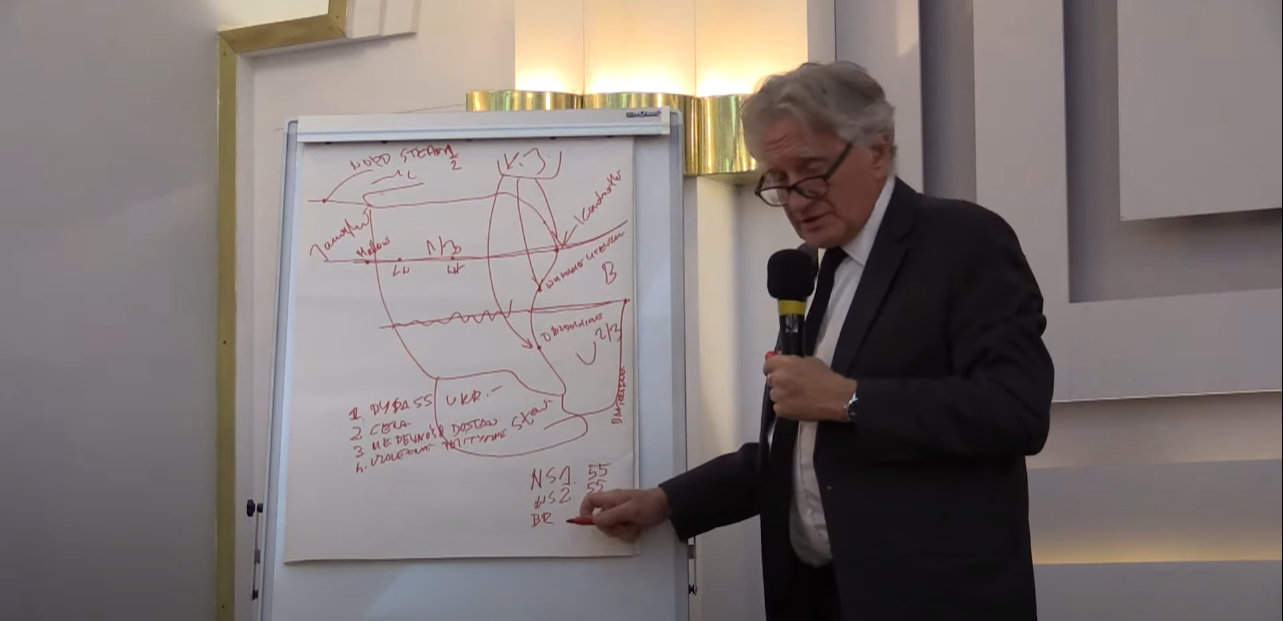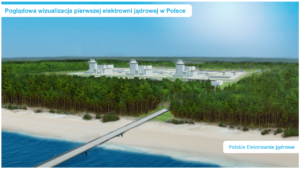Former CEO of PGNiG Piotr Woźniak warns that filling the capacity of the Baltic Pipe can be time-consuming and costly, and according to him, everything was ready in 2019. „Perhaps the negotiations should start from the beginning, and it’s already May, so there are fewer than seven months left until December, when the Baltic Pipe will be fully operational. This means there is little time for negotiations, which may take long. Of course, the full use of the Baltic Pipe can be delayed and postponed to some time later, but I think we should reject Russian gas as soon as possible,” he told BiznesAlert.pl.
BiznesAlert.pl: How did PGNiG prepare the contracts to use the Baltic pipeline, which connects Poland and Norway?
Piotr Woźniak: I don’t know. I can tell you what the state of contracting was until the end of 2019, when I was removed from my post at PGNiG. Back then we publicly announced two approaches: (i) to use all of our own natural gas production in Norway for the pipeline that connects the North Sea and Poland and (ii) to contract all the rest – up to the level of reserved transmission capacity in the Baltic Pipe from producers on the North Sea shelf.
Did the negotiated contracts cover the Baltic Pipe’s booking?
Yes. The contracts were negotiated up to the amount of the booking in order to use the full capacity. The reservation was slightly below the nominal (technical) capacity of the pipeline, amounting to 10 billion cubic meters a year. The contracts were not signed at that time. In December 2019, when I already knew that I would lose my position, I was considering signing them. Only one of them was less advanced, but the others were practically ready. We needed final confirmations. Our partners from the Norwegian shelf were fully aware of the fact that we deliberately left individual details in order to be able to sign an agreement in case of a tender offer. The negotiations have reached a point where suppliers would have to respond positively. However, when I learned that the entire PGNiG board was to be replaced by new professionals who, according to the declaration of one of the ministers, might be able to negotiate even better conditions, I considered in good faith, that they would be better than my colleagues, so I left them space to prove their abilities. The Baltic Pipe was almost three years away from being launched. As a result, I was terribly disappointed.
Have these terms been improved?
I don’t know. I have recently reviewed PGNiG’s stock announcements from the last two years. I noticed with concern that they did not include a word about contracts in Norway. However, it was difficult to get to this information. Listed companies should report on important events, as I have practiced at PGNiG during „my” four years, but for a long time, at least two years, minority shareholders have been disregarded by companies with the State Treasury as a shareholder. It may be that PGNiG disregarded this formal requirement and did not inform the exchange about the conclusion of new contracts. There have been cases like this before. Sometimes data is deliberately hidden from the public, in agreement with the regulator, for example, to protect the company from competition. Such information shall then remain confidential until the competitive threat has passed.
PGNiG reported only about the extraction (up to 3 bcm) from the Norwegian shelf in 2022, in addition to contracts with the Danish Orsted and Lotos, which can yield a total of up to 6 billion cubic meters per year.
It’s definitely not enough to fill the Baltic Pipe.
Should the Baltic Pipe be filled to the brim?
Of course, yes. The last three months have revealed how Russia has been escalating its actions in the gas market. The response to this threat should be to abandon Russian gas and buy different gas from other suppliers, from other sources. It is worth first of all to contact producers operating on the Norwegian shelf.
What should we expect today when it comes to the terms of contracts with Norway?
You’d have to ask the bidders themselves. And the answer can be obtained only in the course of negotiations. It’s right to say that the first person to reach the finish line is the one who pedals faster. You need to be able to negotiate and use this skill. The Norwegians are tough partners. It took us 18 months to negotiate the first Norwegian contract in 2001, which was abandoned by Leszek Miller (the then Prime Minister of Poland and leader of a post-communist party SLD – ed.) immediately after. It’s not because the Norwegians are bureaucrats or we didn’t know how to negotiate, but that’s how long term gas contracts are usually negotiated. As the negotiations develop, more forecasts for production, the behavior of large cartels like OPEC and – now – OPEC+, alliances and cooperation of other suppliers with other buyers and a number of other factors that allow to modify the course of negotiations come into play. Depending on several months of observation of forecasts, the pace and manner of negotiations changes. Sometimes there are dramatic twists and turns. Both sides are prepared for such conditions, because there is always a lot of money involved and no one ignores it. What we negotiated in 2019 and what was ready to be signed when it comes to supply from the Norwegian shelf would now have to be reviewed, given the rebound in gas demand after the removal of the pandemic restrictions, after the Russian aggression in Ukraine, and before that the reduction in gas supplies to Europe from autumn 2021. These are completely different conditions than they in 2019 and earlier. Perhaps the negotiations should start at the beginning, and it is already May, so there are fewer than seven months left until December, when the Baltic pipeline is due to be fully operational. This leaves little time for negotiations, which can take long. Of course, it is possible to delay the full use of the Baltic Pipe and fill it some time later, but I believe that we should reject Russian gas as soon as possible. The seller will always be guided by their own interests and will certainly take advantage of the situation if they realize that the partner-buyer has a weak position.
Alternatively, what role can imports from the German exchange and other neighbors play?
Land connections (interconnectors) with the Czech Republic, Slovakia and Germany, praised in various comments on the security of supply, in a situation of danger do not give anything or very little gas from outside Russia. At this point the gas in the loop in Central and Eastern Europe mostly comes from Russia. The big „diversification” project is about breaking this loop and introducing other gas to the markets. Gas from outside Russia. The wishful thinking about all gas molecules being the same has turned out to be just that. Imperial Russia, which, among other things, finances the war in Ukraine through the sale of gas, violates the world order and is committing genocide, must not be financed in any way. This is morally intolerable. Today when we make tea, we need to think about the victims of the war in Ukraine. We have little time to procure additional gas for the Baltic pipeline, and the prime minister’s unpleasant remarks about the Norwegians have dramatically worsened Poland’s negotiating position. I would also like to warn you that the Russians are at the absolute forefront of negotiators in the gas markets. There are no better teams than the one at Gazprom. Second place is held by the Dutch, then a very long way down there is nobody, and then the rest of the world. Russian teams are the most professional mainly because they do not send to negotiate wigmakers (even brave ones), real estate agents (even if they are related) or experts in embroidery on the canvas (even with weaving achievements), but experts and graduates from Yale, Harvard or MIT, trained in the industry. This business doesn’t tolerate amateurs.
Interview by Wojciech Jakóbik









